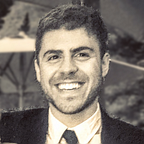tl;dr: Take 5 minutes to skim https://80000hours.org/key-ideas/. It could be one of the most impactful things you do this year.
Black Friday encourages us to buy things in person. Cyber Monday encourages us to buy things on the internet. In response to this focus on consumerism, Giving Tuesday was born. Instead of buying things for people you know personally, take a day to think about improving your community and causes you care about. A few years ago, I’d only ever donated to the Wikimedia foundation thanks to “A Personal Appeal From Jimmy Wales.” Since then I’ve learned a lot about giving and have a very different opinion. I don’t plan to buy anything on Friday or Monday, but on Tuesday, I’ll donate $10,000 to a donor lottery. This post will try to convince you that philanthropy is not only for the wealthy.
Growing up in Pennsylvania, my school often asked students to take part in community service like picking up trash along highways, serving a shift at a food bank, etc. These activities never appealed to me. How much could I hope to accomplish in a day? Instead I set up something that felt more real to me: I put up a flyer in the local library offering to teach people how to use computers. Each week, someone old would come in and I’d show them how to move a mouse and use a web browser. Instead of my impact ending when I went back to class, maybe my students would return to the library and remember their skills on their own.
In a college career fair in NYC, Google’s pitch was “Do cool stuff that matters.” This vague platitude was at least better than the investment banks’ implicit slogan, “The smartest people make the most money.” Working at Google was my first gentle introduction to the Silicon Valley ethos: a small group of people can change the world. My team of eight built a feature used by billions of people a day. But as we iterated on improvements to our product, I kept wondering how much this was really helping the world. Was saving our users 4 billion aggregate seconds a day really equivalent to 126 years of human life? What about the quality of those lives? Or the lives Google couldn’t reach?
I eventually left that team to start Waze Carpool with economist Michael Schwarz, which promised to help those who spent the most time and money on their commutes. Still, I found that job by first seeing what opportunities were available, and then applying. What if I thought about how to spend my time based on a cause I cared about, instead of defaulting into positions I could easily apply for?
An analogy: if you spend 10 minutes deciding where to eat, 10 minutes traveling each way, 10 minutes waiting for the food to prep, and 30 minutes eating, you just spent more time preparing to eat than actually eating. If you applied this time allocation to your 45 year career, you’d spend 20 years figuring out the best way to spend the other 25 years. The analogy assumes that your time allocation in eating is optimal and scales linearly, which isn’t realistic, but it’s still instructive. I think most people don’t spend nearly enough time trying to decide what to spend their working life on. It’s the biggest lever you have to affect the world, not to mention one of the biggest decisions on how you spend your time.
I realized that, all else equal, I could gain a sense of mission by working on problems that I believed helped the world the most. Since starting at OpenAI, I’ve sacrificed a small amount of pay that hasn’t affected my lifestyle in exchange for motivated, passionate coworkers. Depending on what causes you find exciting, I’m sure there’s an organization that could use the skills you have today, or the skills you develop in a few years. Most of my friends self-defeat by thinking global problems are too big for them to have a real impact. But a career, especially in a neglected area, is the biggest lever most of us have, and often plenty big enough. I’m constantly inspired by the stories I hear in the 80,000 podcast.
Now “A personal appeal from Ben Mann”: for Giving Tuesday, for my birthday last month, for the holidays coming up, it would mean a lot to me if you took some time to reflect on what you do with your career. Read https://80000hours.org/key-ideas/ to learn about their framework for how to sift through the hundreds of potential causes to find one that resonates with you. Check out the job board. If even one person decides to change their career because of this post, that’d be the best gift I could ask for. Please don’t hesitate to reach out if you’d like to chat about these ideas, even if you think they’re wrong or misguided!
P.S. The same principles apply to donations. Do your research. Donate!
Thanks to Kuhan Jeyapragasan for the inspiration and Diana Jung for editing.
